
Richard Spurr 1am - 4am
28 March 2021, 09:52 | Updated: 28 March 2021, 10:42
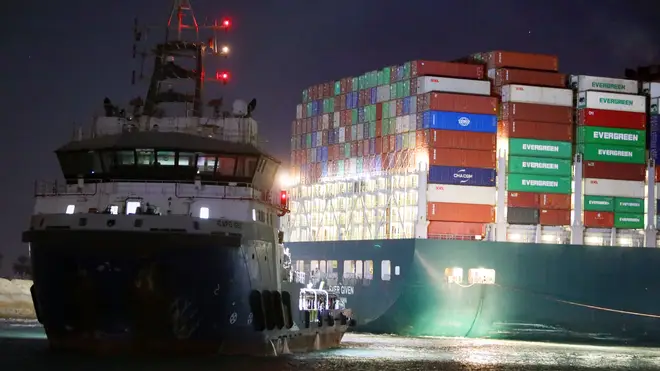
Two additional tugboats have been sent to the Suez Canal to aid with efforts to free a huge container ship which has been wedged across the vital waterway for days.
The Ever Given, a Panama-flagged, Japanese-owned ship that carries cargo between Asia and Europe, got stuck in a single-lane stretch of the canal on Tuesday.
To put into context just how massive the 400m-long vessel, the Shard in London comparably stands at a measly 310m.
Authorities have been unable to remove the vessel and traffic through the canal - valued at more than 9 billion US dollars (£6.5 billion) a day - has been halted, further disrupting a global shipping network already strained by the coronavirus pandemic.
Read more: Ship could be freed from Suez Canal using the tide
Read more: Trapped container ship 'could have impact on UK deliveries'
As of early Sunday, more than 320 ships were waiting to travel through the waterway, either to the Mediterranean or the Red Sea, according to canal services firm Leth Agencies.
The Dutch-flagged Alp Guard and the Italian-flagged Carlo Magno, called in to help tugboats already there, reached the Red Sea near the city of Suez early on Sunday, satellite data from MarineTraffic.com showed.
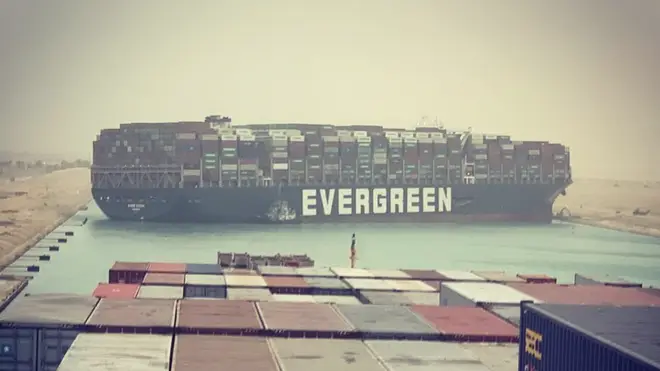
The tugboats will nudge the 1,312ft (400m) long Ever Given as dredgers continue to vacuum up sand from underneath the vessel and mud caked to its port side, said Bernhard Schulte Shipmanagement, which manages the Ever Given.
On Saturday, the head of the Suez Canal Authority told journalists that strong winds were "not the only cause" for the Ever Given running aground, amid conflicting assessments.
Lieutenant General Osama Rabei said an investigation is ongoing but did not rule out human or technical error.
Bernhard Schulte Shipmanagement maintains that "initial investigations rule out any mechanical or engine failure as a cause of the grounding".
However, at least one initial report suggested a "blackout" struck the vessel, which was carrying some 20,000 containers at the time of the incident.
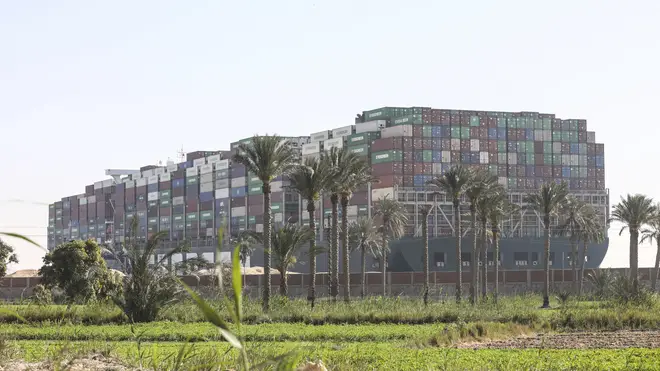
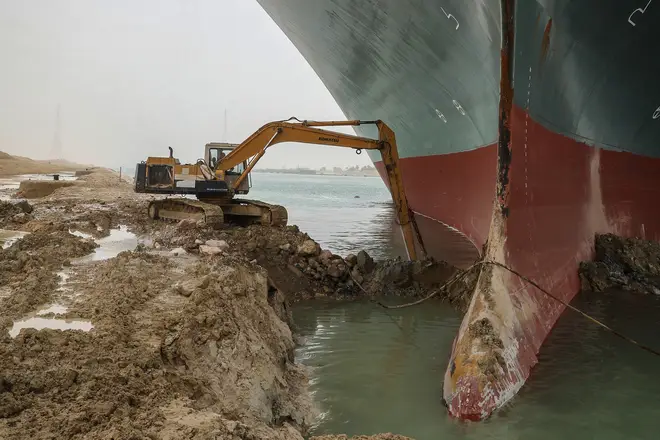
Lt Gen Rabei said he remains hopeful that dredging could free the ship without having to resort to removing its cargo, but added that "we are in a difficult situation, it's a bad incident".
Asked when they expect to free the vessel and reopen the canal, he said: "I can't say because I do not know."
Shoei Kisen Kaisha Ltd, the company that owns the vessel, said it is considering removing containers if other refloating efforts fail.
The Ever Given is wedged about 3.7 miles (6km) north of the canal's Red Sea entrance, near the city of Suez.
A prolonged closure of the crucial waterway would cause delays in the global shipment chain.
Around 12% of the world's trade passes through the waterway, opened in 1869, and figures show around 52 ships a day go through.
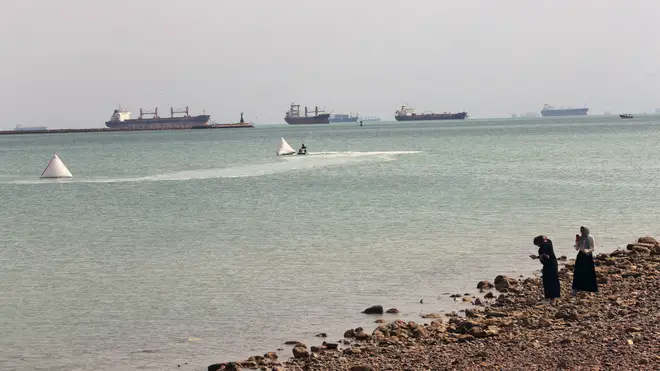
The closure could affect oil and gas shipments to Europe from the Middle East. Already, Syria has begun rationing the distribution of fuel in the war-torn country amid concerns of delays of shipments arriving amid the blockage.
Dozens of others still listed their destination as the canal, although shippers increasingly appear to be avoiding the passage.
The world's biggest shipping company, Denmark's
AP Moller-Maersk, warned its customers that it could take between three and six days to clear the backlog of vessels at the canal. Already, the firm and its partners have 22 ships waiting there.
"The current number (of) redirected Maersk and partner vessels is 14 and expected to rise as we assess the salvage efforts along with network capacity and fuel on our vessels currently en route to Suez," the shipper said.
Mediterranean Shipping Co, the world's second-largest, said it has already rerouted at least 11 ships around Africa's Cape of Good Hope to avoid the canal. It turned back two other ships and said it expects "some missed sailings as a result of this incident".
"MSC expects this incident to have a very significant impact on the movement of containerised goods, disrupting supply chains beyond the existing challenges posed by the Covid-19 pandemic," it said.